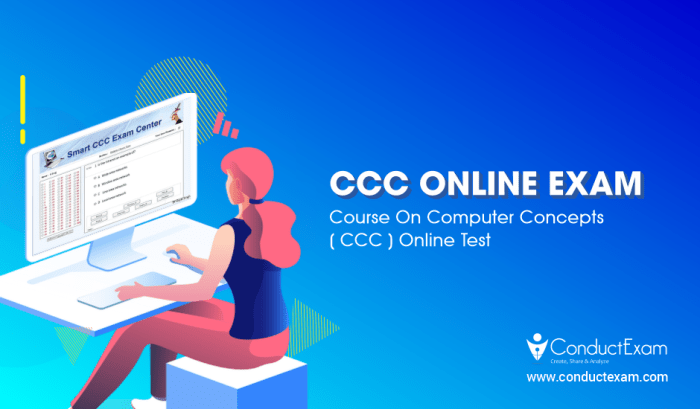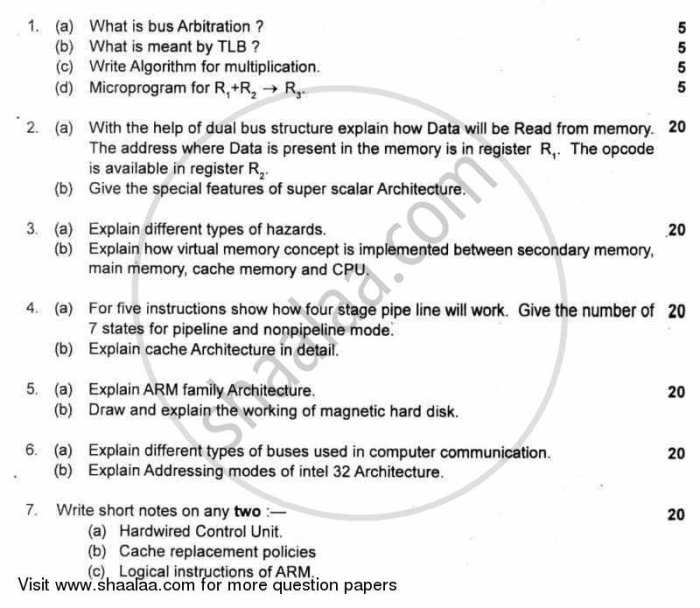Embarking on the Module 14 Computer Concepts Exam, this comprehensive guide is meticulously crafted to equip you with the knowledge and strategies essential for achieving success. Delving into the intricacies of the exam, we will explore its structure, content, and effective study techniques, empowering you to navigate this academic endeavor with confidence and proficiency.
The subsequent paragraphs will provide an in-depth analysis of the exam format, key concepts tested, and recommended study resources. Additionally, sample questions and expert tips will be presented to enhance your understanding and exam preparedness. By embracing the insights contained within this guide, you will be well-positioned to excel in the Module 14 Computer Concepts Exam, unlocking the gateway to academic and professional growth.
Introduction: Module 14 Computer Concepts Exam

The Module 14 Computer Concepts exam assesses students’ understanding of fundamental computer concepts, operating systems, and networking.
The exam covers the following topics:
- Computer hardware and software
- Operating system concepts
- Networking concepts
- Security concepts
- Ethical and social issues in computing
Exam Format and Structure
The Computer Concepts Exam for Module 14 consists of multiple-choice questions, designed to assess your understanding of the concepts covered throughout the module.
Question Format and Time Limit
The exam comprises 50 multiple-choice questions. Each question is worth two points, resulting in a total possible score of 100 points. You will have 60 minutes to complete the exam, which equates to approximately 1 minute and 12 seconds per question.
Scoring and Grading
Your score on the exam will be determined by the number of questions you answer correctly. There is no penalty for incorrect answers. The grading scale is as follows:* 90-100%: Excellent
80-89%
Good
70-79%
Satisfactory
60-69%
Pass
Below 60%
Fail
Exam Content
The exam content covers a wide range of fundamental concepts and topics related to computer science and information technology. These include:
The level of difficulty of the exam content is typically moderate, with a focus on testing the candidate’s understanding of the key concepts and their ability to apply them in practical situations.
Key Concepts and Topics Tested
- Computer hardware and software components
- Operating systems and networking
- Data structures and algorithms
- Database management systems
- Web development and programming
- Information security and ethics
- Cloud computing and mobile technologies
Examples of Exam Questions, Module 14 computer concepts exam
- Describe the different types of computer networks and their advantages and disadvantages.
- Explain the concept of object-oriented programming and its benefits.
- Discuss the role of cloud computing in modern business.
Study Strategies

Effective preparation for the exam requires a comprehensive study plan that encompasses effective strategies, resource utilization, time management, and test-taking techniques.
Adopting active learning methods, such as summarizing key concepts, engaging in practice questions, and seeking clarification on challenging topics, can significantly enhance understanding and retention.
Resources and Materials
Leveraging a diverse range of study resources is crucial for comprehensive exam preparation. These resources may include:
- Course textbooks and lecture notes
- Online study guides and practice exams
- Subject-specific reference materials
li>Tutorials and videos from reputable sources
Time Management and Test-Taking Techniques
Effective time management is essential for exam preparation. Creating a structured study schedule, prioritizing challenging topics, and allocating sufficient time for practice and review can optimize learning outcomes.
During the exam, employing strategic test-taking techniques can maximize performance. These techniques include:
- Previewing the entire exam to assess question difficulty and time allocation
- Answering easier questions first to build confidence and momentum
- Managing time effectively, avoiding spending excessive time on any single question
- Utilizing educated guessing strategies when unsure of an answer
Sample Questions and Answers
To help you better understand the exam content and format, we have compiled a list of sample questions with detailed answers and explanations.
Question 1
| Question: | Identify the main components of a computer system. |
|---|---|
| Answer: | – Hardware (physical components)
|
The correct answer includes all four essential components that make up a complete computer system.
Question 2
| Question: | Explain the difference between operating systems and application software. |
|---|---|
| Answer: | – Operating systems manage the hardware and software resources of the computer, providing a platform for application software to run.
|
The correct answer highlights the distinct roles of operating systems and application software in a computer system.
Tips for Success
Achieving success in the Module 14 Computer Concepts Exam requires strategic preparation and effective exam-taking techniques. By adhering to these tips, you can enhance your performance and maximize your chances of earning a high score.
To optimize your exam performance, consider the following strategies:
Common Mistakes to Avoid
- Lack of preparation:Failing to dedicate sufficient time and effort to studying the exam material can lead to poor performance.
- Time mismanagement:Not allocating time wisely during the exam can result in rushing through questions or leaving some unanswered.
- Overconfidence:Assuming you are well-prepared without thoroughly reviewing the material can lead to unexpected challenges.
- Careless mistakes:Failing to read questions carefully or making errors in calculations can result in lost points.
li> Stress and anxiety:Excessive stress and anxiety can hinder concentration and impair exam performance.
Strategies for Managing Stress and Anxiety
- Preparation:Thorough preparation and familiarity with the exam format can help reduce stress levels.
- Time management:Allocating time wisely during the exam can help alleviate pressure and anxiety.
- Relaxation techniques:Practicing relaxation techniques such as deep breathing or meditation can help calm nerves and improve focus.
- Positive self-talk:Encouraging yourself with positive affirmations can boost confidence and reduce anxiety.
- Seek support:If stress and anxiety become overwhelming, consider seeking support from friends, family, or a counselor.
Key Questions Answered
What is the purpose of the Module 14 Computer Concepts Exam?
The Module 14 Computer Concepts Exam assesses your understanding of fundamental computer concepts, providing a benchmark for your knowledge and skills in this critical field.
What topics are covered on the exam?
The exam encompasses a wide range of computer concepts, including hardware, software, operating systems, networking, and internet technologies.
How should I prepare for the exam?
Effective preparation involves studying the course material thoroughly, practicing sample questions, and utilizing recommended study resources.
What are some tips for success on the exam?
Manage your time wisely, read instructions carefully, and remain calm and focused throughout the exam.